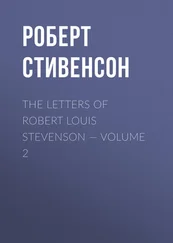Robert Stevenson - The Works of Robert Louis Stevenson – Swanston Edition. Volume 21
Здесь есть возможность читать онлайн «Robert Stevenson - The Works of Robert Louis Stevenson – Swanston Edition. Volume 21» — ознакомительный отрывок электронной книги совершенно бесплатно, а после прочтения отрывка купить полную версию. В некоторых случаях можно слушать аудио, скачать через торрент в формате fb2 и присутствует краткое содержание. Жанр: foreign_prose, на английском языке. Описание произведения, (предисловие) а так же отзывы посетителей доступны на портале библиотеки ЛибКат.
- Название:The Works of Robert Louis Stevenson – Swanston Edition. Volume 21
- Автор:
- Жанр:
- Год:неизвестен
- ISBN:нет данных
- Рейтинг книги:4 / 5. Голосов: 1
-
Избранное:Добавить в избранное
- Отзывы:
-
Ваша оценка:
- 80
- 1
- 2
- 3
- 4
- 5
The Works of Robert Louis Stevenson – Swanston Edition. Volume 21: краткое содержание, описание и аннотация
Предлагаем к чтению аннотацию, описание, краткое содержание или предисловие (зависит от того, что написал сам автор книги «The Works of Robert Louis Stevenson – Swanston Edition. Volume 21»). Если вы не нашли необходимую информацию о книге — напишите в комментариях, мы постараемся отыскать её.
The Works of Robert Louis Stevenson – Swanston Edition. Volume 21 — читать онлайн ознакомительный отрывок
Ниже представлен текст книги, разбитый по страницам. Система сохранения места последней прочитанной страницы, позволяет с удобством читать онлайн бесплатно книгу «The Works of Robert Louis Stevenson – Swanston Edition. Volume 21», без необходимости каждый раз заново искать на чём Вы остановились. Поставьте закладку, и сможете в любой момент перейти на страницу, на которой закончили чтение.
Интервал:
Закладка:
“Young woman,” corrected Mr. Naseby.
“Yes, sir,” said the man, who had been unwilling enough to gossip from the first, and was now cowed by the effect of his communications on the master. “Young woman, sir!”
“Had they luggage?” demanded the Squire.
“Yes, sir.”
Mr. Naseby was silent for a moment, struggling to keep down his emotion, and he mastered it so far as to mount into the sarcastic vein, when he was in the nearest danger of melting into the sorrowful.
“And was this – this Van Dunk with them?” he asked, dwelling scornfully on the name.
The servant believed not, and being eager to shift the responsibility to other shoulders, suggested that perhaps the master had better inquire further from George the stableman in person.
“Tell him to saddle the chestnut and come with me. And then you can take away this trash,” added Mr. Naseby, pointing to the luncheon; and he arose, lordly in his anger, and marched forth upon the terrace to await his horse.
There Dick’s old nurse shrunk up to him, for the news went like wildfire over Naseby House, and timidly expressed a hope that there was nothing much amiss with the young master.
“I’ll pull him through,” the Squire said grimly, as though he meant to pull him through a threshing-mill; “I’ll save him from this gang; God help him with the next! He has a taste for low company, and no natural affections to steady him. His father was no society for him; he must go fuddling with a Dutchman, Nance, and now he’s caught. Let us pray he’ll take the lesson,” he added, more gravely, “but youth is here to make troubles, and age to pull them out again.”
Nance whimpered and recalled several episodes of Dick’s childhood, which moved Mr. Naseby to blow his nose and shake her hard by the hand; and then, the horse having arrived opportunely, to get himself without delay into the saddle and canter off.
He rode straight, hot spur, to Thymebury, where, as was to be expected, he could glean no tidings of the runaways. They had not been seen at the George; they had not been seen at the station. The shadow darkened on Mr. Naseby’s face; the junction did not occur to him; his last hope was for Van Tromp’s cottage; thither he bade George guide him, and thither he followed, nursing grief, anxiety, and indignation in his heart.
“Here it is, sir,” said George, stopping.
“What! on my own land!” he cried. “How’s this? I let this place to somebody – M’Whirter or M’Glashan.”
“Miss M’Glashan was the young lady’s aunt, sir, I believe,” returned George.
“Ay – dummies,” said the Squire. “I shall whistle for my rent too. Here, take my horse.”
The Admiral, this hot afternoon, was sitting by the window with a long glass. He already knew the Squire by sight, and now, seeing him dismount before the cottage and come striding through the garden, concluded without doubt he was there to ask for Esther’s hand.
“This is why the girl is not yet home,” he thought; “a very suitable delicacy on young Naseby’s part.”
And he composed himself with some pomp, answered the loud rattle of the riding-whip upon the door with a dulcet invitation to enter, and coming forward with a bow and a smile, “Mr. Naseby, I believe,” said he.
The Squire came armed for battle; took in his man from top to toe in one rapid and scornful glance, and decided on a course at once. He must let the fellow see that he understood him.
“You are Mr. Van Tromp?” he returned roughly, and without taking any notice of the proffered hand.
“The same, sir,” replied the Admiral. “Pray be seated.”
“No, sir,” said the Squire, point-blank, “I will not be seated. I am told that you are an admiral,” he added.
“No, sir, I am not an admiral,” returned Van Tromp, who now began to grow nettled and enter into the spirit of the interview.
“Then why do you call yourself one, sir?”
“I have to ask your pardon, I do not,” says Van Tromp, as grand as the Pope.
But nothing was of avail against the Squire.
“You sail under false colours from beginning to end,” he said. “Your very house was taken under a sham name.”
“It is not my house. I am my daughter’s guest,” replied the Admiral. “If it were my house – ”
“Well?” said the Squire, “what then? hey?”
The Admiral looked at him nobly, but was silent.
“Look here,” said Mr. Naseby, “this intimidation is a waste of time; it is thrown away on me, sir; it will not succeed with me. I will not permit you even to gain time by your fencing. Now, sir, I presume you understand what brings me here.”
“I am entirely at a loss to account for your intrusion,” bows and waves Van Tromp.
“I will try to tell you, then. I come here as a father” – down came the riding-whip upon the table – “I have right and justice upon my side. I understand your calculations, but you calculated without me. I am a man of the world, and I see through you and your manœuvres. I am dealing now with a conspiracy – I stigmatise it as such, and I will expose it and crush it. And now I order you to tell me how far things have gone, and whither you have smuggled my unhappy son.”
“My God, sir!” Van Tromp broke out, “I have had about enough of this. Your son? God knows where he is for me! What the devil have I to do with your son? My daughter is out, for the matter of that; I might ask you where she is, and what would you say to that? But this is all midsummer madness. Name your business distinctly, and be off.”
“How often am I to tell you?” cried the Squire. “Where did your daughter take my son to-day in that cursed pony carriage?”
“In a pony carriage?” repeated Van Tromp.
“Yes, sir – with luggage.”
“Luggage?” – Van Tromp had turned a little pale.
“Luggage, I said – luggage!” shouted Naseby. “You may spare me this dissimulation. Where’s my son? You are speaking to a father, sir, a father.”
“But, sir, if this be true,” out came Van Tromp in a new key, “it is I who have an explanation to demand.”
“Precisely. There is the conspiracy,” retorted Naseby. “Oh!” he added, “I am a man of the world. I can see through and through you.”
Van Tromp began to understand.
“You speak a great deal about being a father, Mr. Naseby,” said he; “I believe you forget that the appellation is common to both of us. I am at a loss to figure to myself, however dimly, how any man – I have not said any gentleman – could so brazenly insult another as you have been insulting me since you entered this house. For the first time I appreciate your base insinuations, and I despise them and you. You were, I am told, a manufacturer; I am an artist; I have seen better days; I have moved in societies where you would not be received, and dined where you would be glad to pay a pound to see me dining. The so-called aristocracy of wealth, sir, I despise. I refuse to help you; I refuse to be helped by you. There lies the door.”
And the Admiral stood forth in a halo.
It was then that Dick entered. He had been waiting in the porch for some time back, and Esther had been listlessly standing by his side. He had put out his hand to bar her entrance, and she had submitted without surprise; and though she seemed to listen, she scarcely appeared to comprehend. Dick, on his part, was as white as a sheet; his eyes burned and his lips trembled with anger as he thrust the door suddenly open, introduced Esther with ceremonious gallantry, and stood forward and knocked his hat firmer on his head like a man about to leap.
“What is all this?” he demanded.
“Is this your father, Mr. Naseby?” inquired the Admiral.
“It is,” said the young man.
Читать дальшеИнтервал:
Закладка:
Похожие книги на «The Works of Robert Louis Stevenson – Swanston Edition. Volume 21»
Представляем Вашему вниманию похожие книги на «The Works of Robert Louis Stevenson – Swanston Edition. Volume 21» списком для выбора. Мы отобрали схожую по названию и смыслу литературу в надежде предоставить читателям больше вариантов отыскать новые, интересные, ещё непрочитанные произведения.
Обсуждение, отзывы о книге «The Works of Robert Louis Stevenson – Swanston Edition. Volume 21» и просто собственные мнения читателей. Оставьте ваши комментарии, напишите, что Вы думаете о произведении, его смысле или главных героях. Укажите что конкретно понравилось, а что нет, и почему Вы так считаете.










